Understanding the Role of Hydraulic Fluid in Dump Trailers
Hydraulic systems play a critical role in the functionality and efficiency of dump trailers. The hydraulic fluid is the lifeblood of these systems, facilitating the lifting and lowering mechanisms that allow for effective unloading of cargo. Without an adequate amount of hydraulic fluid, your dump trailer may struggle to operate, leading to potential hazards and costly repairs.
Key Functions of Hydraulic Fluid
- Power Transfer: Hydraulic fluid enables the transfer of force within the system, powering the lift cylinder that elevates the trailer bed.
- Lubrication: It acts as a lubricant for moving parts to reduce wear and tear.
- Heat Dissipation: Hydraulic systems generate heat during operation; fluid serves to dissipate that heat, protecting components from damage.
- Corrosion Protection: Proper hydraulic fluids contain additives that inhibit rust and degradation in the system.
Understanding these functions allows manufacturers and operators to appreciate why maintaining the correct hydraulic fluid level is vital for operational success.
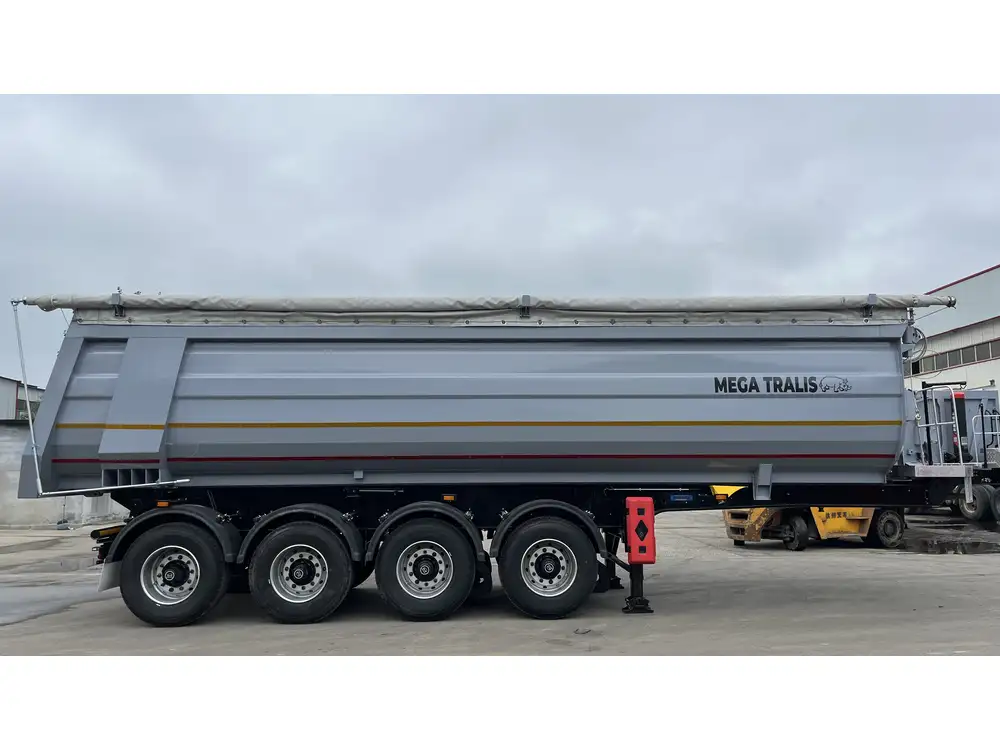
How Much Hydraulic Fluid Do You Need?
The precise amount of hydraulic fluid required for your dump trailer can vary based on several factors, including the trailer’s design, size, and operating capacity. Generally, dump trailers require anywhere between 4 to 15 gallons of hydraulic fluid. Here’s a breakdown of the factors influencing the specific fluid requirements:
Factors Influencing Hydraulic Fluid Capacity
| Factor | Influence |
|---|---|
| Dump Trailer Size | Larger trailers need more fluid to operate efficiently. |
| Lift Cylinder Capacity | Higher lift capacities require more fluid for operation. |
| Manufacturer Specifications | Always consult the manufacturer’s manual for precise requirements. |
| Operating Conditions | Extreme temperature changes may alter fluid viscosity and affect requirements. |
Specifications of Hydraulic Fluid for Dump Trailers
When discussing hydraulic fluids, it’s not just about the quantity; the type and quality of the fluid matter significantly. Here’s what you need to know:
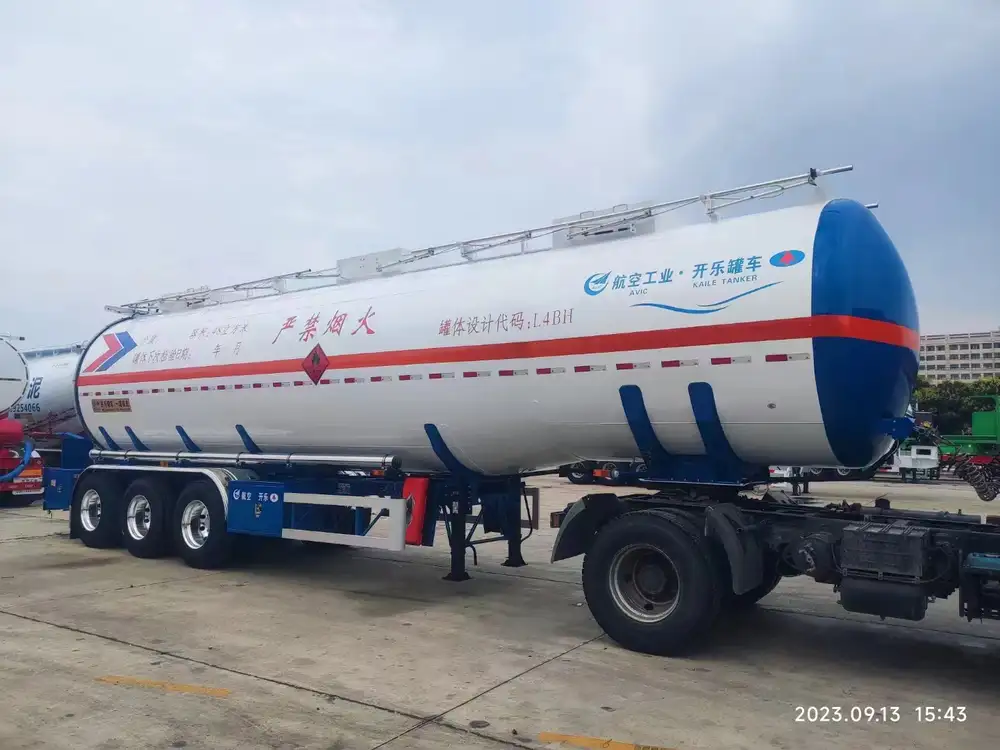
Types of Hydraulic Fluids
Mineral Oil-Based Fluids:
- Widely used, economical, and effective for most standard applications.
Biodegradable Fluids:
- Often derived from renewable resources, these fluids are ideal for environmentally sensitive areas but may be more expensive.
Water-Based Fluids:
- Less commonly used due to lower lubricating properties but can be effective in certain applications.
Viscosity Ratings
- ISO Viscosity Grades: Hydraulic fluids are rated by their viscosity, typically ranging from ISO 32 to ISO 68. Using the incorrect viscosity can lead to system inefficiencies and wear on components.
Additives
Look for hydraulic fluids enriched with antioxidants, anti-wear agents, and corrosion inhibitors. Such additives significantly prolong the life of hydraulic systems.
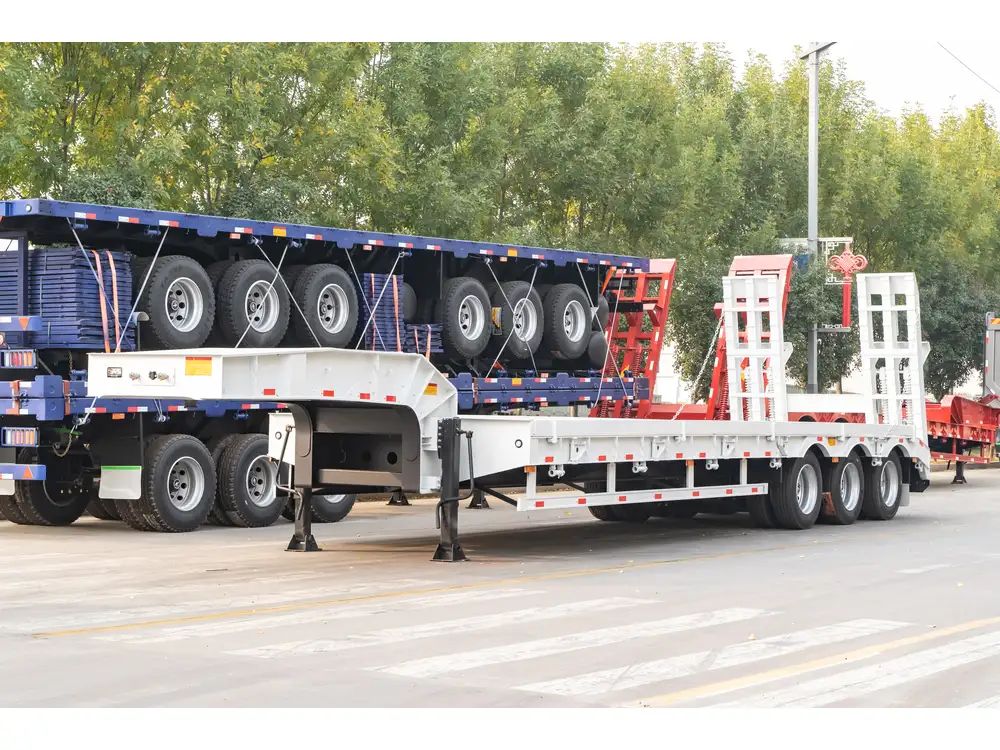
Determining the Right Amount of Fluid
Finding the right amount of hydraulic fluid requires some straightforward steps. Here’s a structured approach for dump trailer operators:
Step-by-Step Fluid Assessment
- Check Manufacturer Guidelines: Refer to the trailer’s user manual to obtain the recommended fluid capacity.
- Locate Check Valve or Reservoir: Identify where the hydraulic fluid is stored. Most trailers have a reservoir with a dipstick or sight gauge for easy monitoring.
- Inspect Fluid Level: With the trailer on level ground, check the fluid level. If it’s below the “Full” mark, it’s time to add fluid.
- Add Fluid Gradually: When adding fluid, do so in increments to avoid overfilling, which can lead to leaks and system malfunctions.
- Test Operation: Once fluid levels are adjusted, operate the lift to ensure smooth and effective function. Look out for any straining sounds which may indicate fluid issues.
Signs of Inadequate Hydraulic Fluid
It’s crucial to be aware of the warning signs that may indicate inadequate hydraulic fluid levels in your dump trailer:
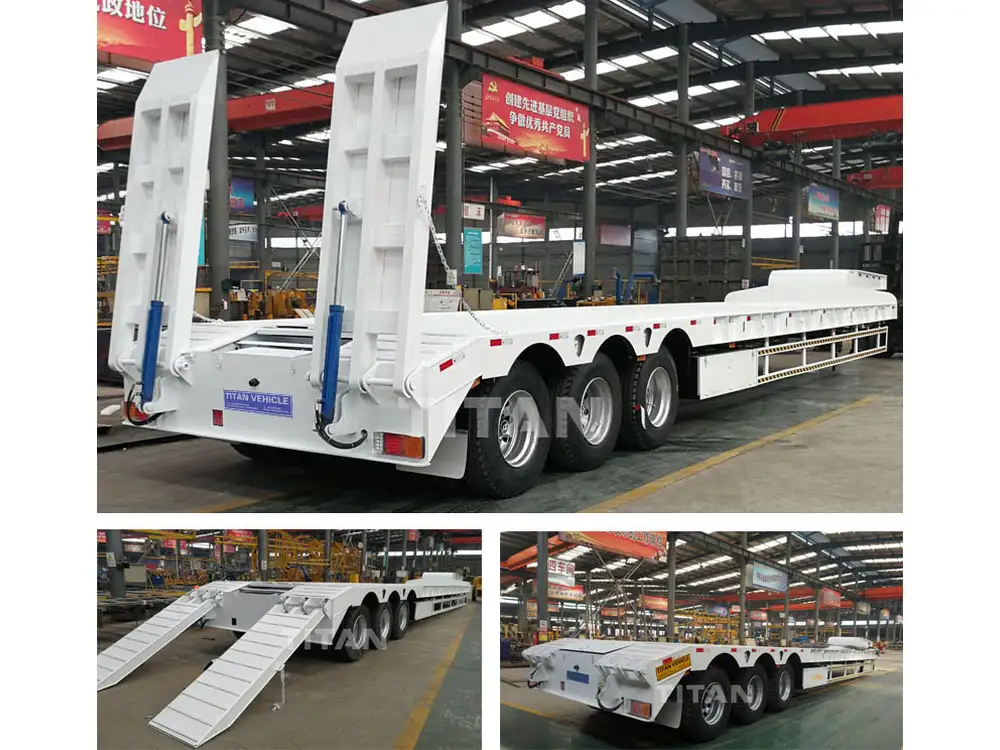
Warning Indicators
| Symptom | Implication |
|---|---|
| Slow or Jerky Movements | Insufficient fluid causing pressure inconsistencies. |
| Noisy Operation | Lack of lubrication leading to grinding sounds. |
| Visible Leaks | Indicates excessive wear or potential failure points. |
| Overheating Components | Failure to dissipate heat, risking damage to hydraulic parts. |
Troubleshooting Hydraulic Issues
- Inspect for Leaks: Regularly examine connections, hoses, and cylinders for signs of fluid leakage.
- Check Fluid Color: Healthy hydraulic fluid typically appears clean and clear; murky or dark fluid indicates contamination.
- Monitor Temperature: Overheating can affect performance. If the system gets too hot, consider taking a break to allow cooling.
Maintenance Practices to Ensure Optimal Performance
Regular maintenance is essential for the longevity of hydraulic systems in dump trailers. Below are effective practices to implement:
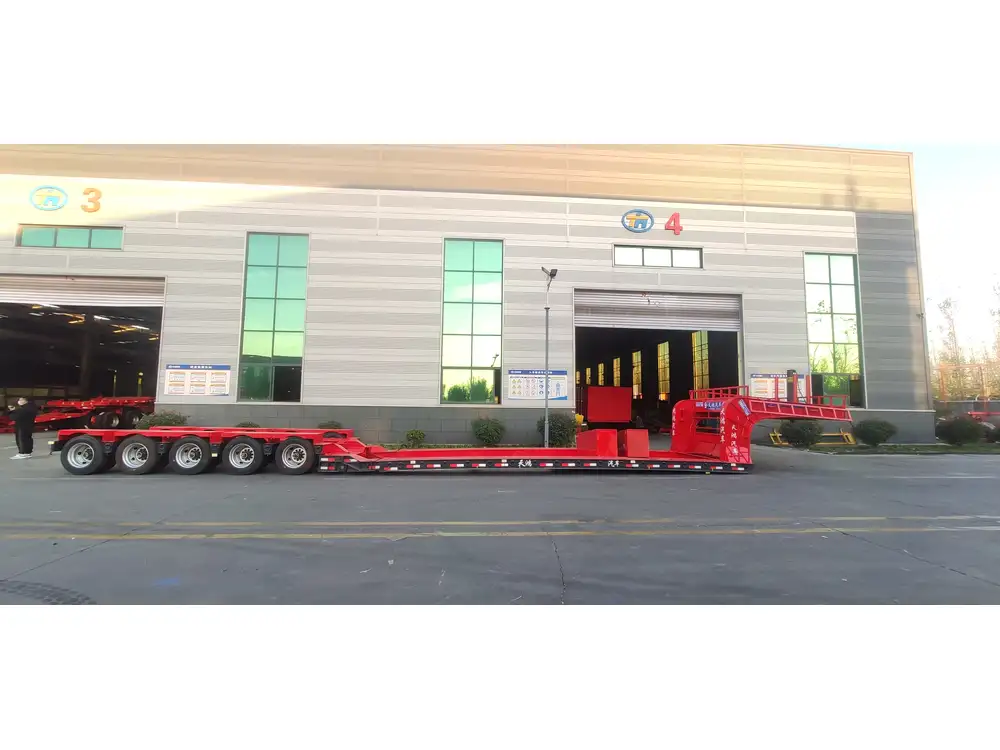
Routine Inspection Schedule
- Weekly Checks: Inspect fluid levels, and visually check for leaks or wear.
- Monthly Maintenance: Change the hydraulic fluid as recommended by the manufacturer, providing a thorough system flush if necessary.
- Annual Service: Involve a professional technician to evaluate system integrity, cylinder performance, and possible upgrades.
Recommended Hydraulic Fluid Change Frequency
| Severity of Use | Change Interval |
|---|---|
| Light Use | Every 12 months |
| Moderate Use | Every 6 months |
| Heavy Use | Every 3 months |
Adhering to these intervals helps to prevent significant issues down the line, ensuring your dump trailer remains operationally efficient.
Choosing the Right Hydraulic Fluid: A Comparative Look
Selecting the appropriate hydraulic fluid can often be overwhelming given the many choices available. Below is a comparative table that highlights essential characteristics of different types of hydraulic fluids.
| Fluid Type | Pros | Cons |
|---|---|---|
| Mineral Oil | – Widely available – Economical | – Environmental impact |
| Biodegradable Oil | – Eco-friendly – Performs well in sensitive areas | – Higher cost |
| Water-Based Fluid | – Lower ignition risk – Cost-effective | – Lesser lubrication properties |
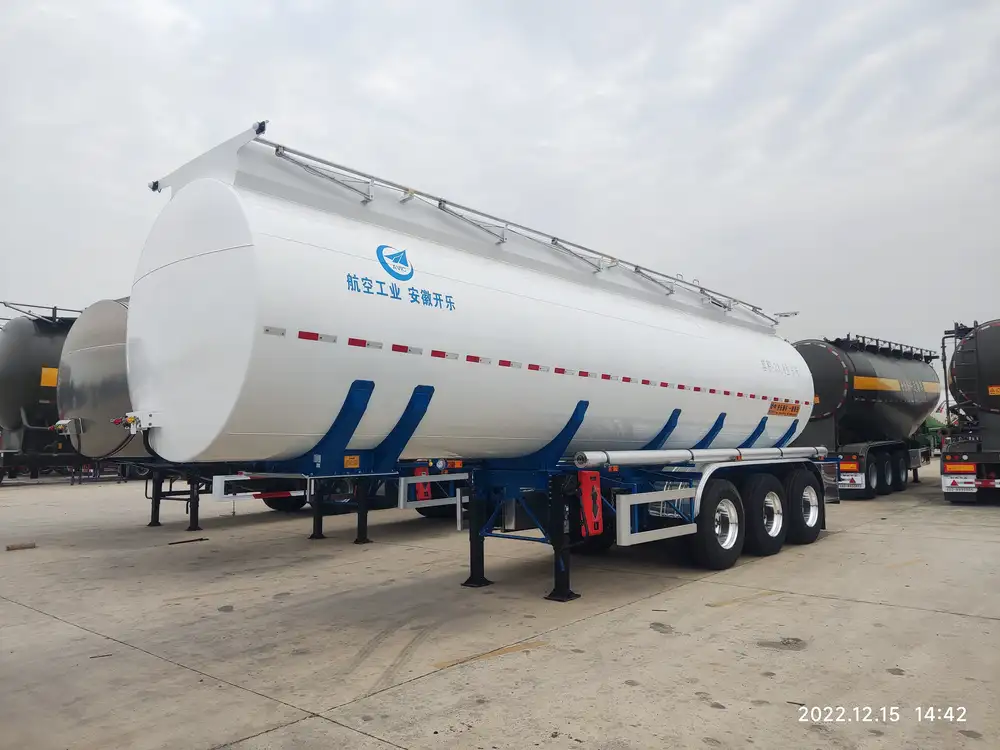
Conclusion: Empowering Your Dump Trailer’s Performance
In conclusion, understanding how much hydraulic fluid is necessary for your dump trailer is crucial for its reliable operation. Recognizing the indicators of insufficient fluid levels, alongside the right practices for maintenance, can make all the difference. Be proactive, follow the recommended practices, and invest in quality hydraulic fluids tailored to your trailer’s needs. By doing so, you can ensure a smooth, safe, and efficient operation that withstands the demands of heavy-duty tasks.
By employing this knowledge, dump trailer operators will not only enhance their equipment’s performance but also prolong its lifespan, contributing to overall operational excellence.



